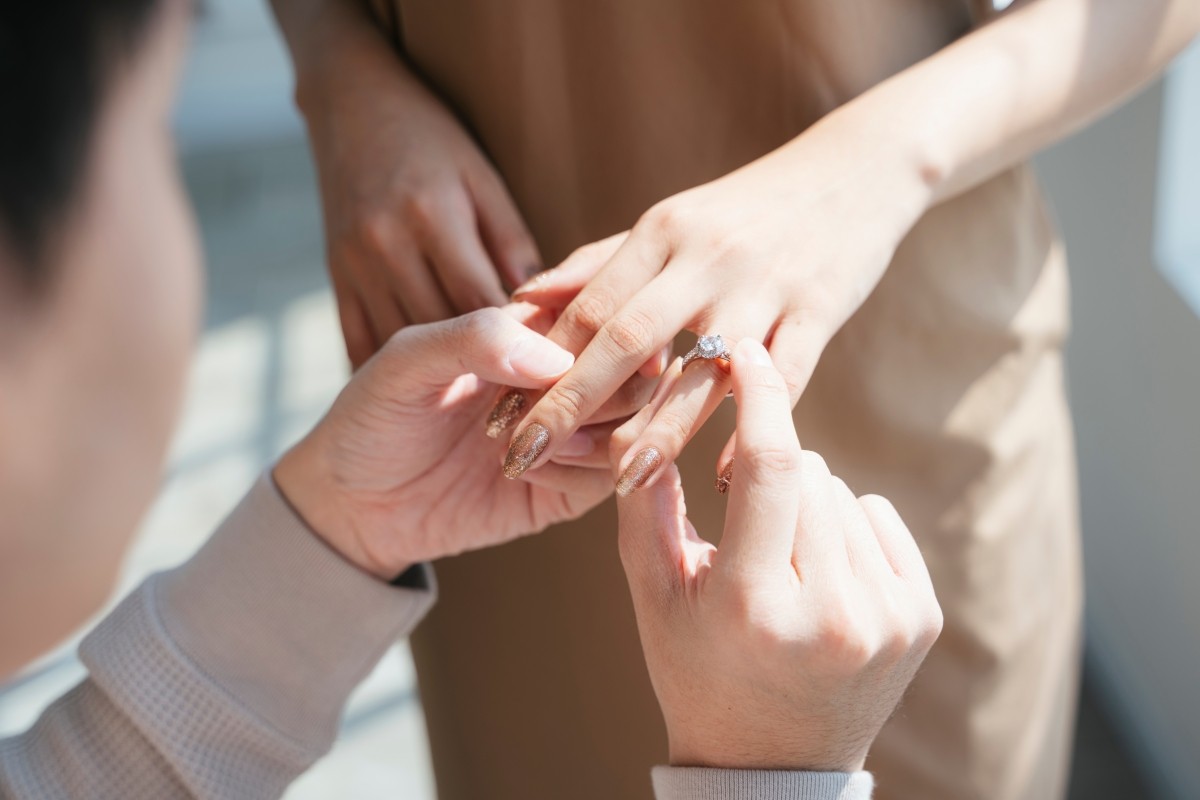How to Say "I Love You" in Japanese? Expressing Love to Japanese People

In movies, dramas, and manga that revolve around themes of romance or family love, you rarely hear the phrase "Aishiteru," which is the direct expression of love in Japanese. So, how do Japanese people actually express their love in real life? This article will answer that question by exploring how to express love in Japanese, how to respond to such expressions, and some examples of conversations.
How to Say "I Love You" and "I like you" in Japanese?

In Japanese, "愛してる (Aishiteru)" translates to "I love you." It’s a word that conveys deep feelings of affection towards a romantic partner, but it can also express love for family, pets, or something you hold dear. However, for most people, "Aishiteru" isn’t used lightly or for one-sided crushes. Instead, the word "好き (Suki)", which means "like," is often used in these cases to convey similar feelings.
How to Say "I Love You" to Japanese People?
"Aishiteru" is a Heavy Word for Japanese People

Since many Japanese people are quite reserved, it’s not common to hear "Aishiteru" in everyday conversations with family members, partners, or even someone you’re in love with. However, if there’s a situation where it absolutely needs to be conveyed, people will clearly express "Aishiteru." For example, during a marriage proposal or when the other person feels uncertain about your love. In these situations, especially if it involves children, a lover, or a partner, explicitly saying "Aishiteru" can help solve many issues related to love and affection.
In this sense, "Aishiteru" carries a lot of weight for Japanese people and is seen as a word that grows over time. If someone with whom you’re not yet close says it too early, it may cause doubt or discomfort. Therefore, it’s best to use "Aishiteru" with caution. Even in long-term relationships or between partners, "Suki" often feels more natural. Additionally, using "Suki" can still be tricky depending on the relationship, and similar to "Aishiteru," it’s not commonly used with friends or colleagues.
How to Express Love to Japanese People?

So, how can you express love to Japanese people? The key is to demonstrate your feelings with gestures and words that are appropriate for the level of closeness and time spent together. For example, before entering a relationship, it’s important to gradually get closer by showing respect for the other person’s feelings and spending more time talking with them. Once you’re able to meet one-on-one, share personal stories and indirectly express your feelings as you build trust over time. At that point, expressing your affection has a higher chance of being well-received.
How to Write "Aishiteru" in Hiragana?
How to Write "Aishiteru" in Hiragana?
In Japanese hiragana, "Aishiteru" is written as "あいしてる." Sometimes, it’s intentionally written in hiragana to give a softer or cuter impression, but the most common way is to write it using kanji and okurigana (characters that indicate verb conjugation).
How to Write "Aishiteru" in Kanji?
When writing "Aishiteru" in kanji, it’s written as "愛してる." This format combines kanji with okurigana (additional characters that indicate verb conjugation).
Other Ways to Say "Aishiteru"
For many reserved Japanese people, "Aishiteru" can be difficult to say out loud. However, this doesn’t mean that they don't seek ways to express their affection. As a result, there are various alternative expressions for showing love. Here are some examples:
| Japanese | Romanized | Meaning |
| 愛してます | Aishite masu | A polite way to say "Aishiteru." |
| 愛しく思っています | Itoshiku omotte imasu | A stronger expression of "precious" feelings. |
好きです | Suki Desu | An easy-to-use phrase when first confessing feelings to someone you like. |
| 大好き | Dai Suki | Expresses "very much like" or deep affection. |
付き合ってください | Tsukiatte Kudasai | A phrase is used when asking someone to start a relationship, especially with someone you've known for a long time. |
| ずっと好きでした | Zutto suki deshita | Used when asking someone you’ve known for a long time to date you. |
| 慕っています | Shitatte Imasu | Expresses romantic feelings and sometimes admiration or respect. |
| 大切に思っています | Taisetu ni Omotte imasu | A phrase used to convey that someone is very important to you. |
| もっと一緒にいたい | Motto Isshoni Itai | Used to express a desire to spend more time together. |
How to respond to "Aishiteru"

If someone says "Aishiteru" to you, and you feel the same way, the most common response is to add "私も (Watashi mo)" or "僕も (Boku mo)," which means "me too," before "Aishiteru" or "Suki." However, there are other ways to respond based on the situation. Let’s take a look at a few examples:
| Japanese | Romanized | Meaning |
| 私も(僕も、俺も) | Watashi mo(Boku mo, Ore mo) | Used to express that you feel the same way without repeating "Aishiteru." "Watashi" is used by women, and "Boku" or "Ore" by men. |
本当に? | Hontou ni ? | A phrase that subtly conveys happiness and is sometimes used to confirm the strength of the other person's feelings. |
| もう一度言って | Mou ichido itte | A request to hear "Aishiteru" again, often to savor the rare words or to confirm if it’s genuine. |
| ありがとう | Arigatou | Expresses gratitude for the declaration of love. However, if you only say "Arigatou," it might indicate appreciation without romantic feelings. |
| ごめんなさい | Gomen nasai | Essentially, it was an apology. A word that is often used Primarily an apology, this phrase is often used to gently reject someone’s feelings if you don’t reciprocate their love. |
Expressing Love Correctly to a Japanese Person

Many Japanese people prefer expressing affection indirectly through actions rather than words. For example, holding hands or putting an arm around someone's shoulder are common gestures. However, physical affection can be uncomfortable or unwelcome unless you’re in a close relationship. To avoid misunderstandings, it's important to know the preferred ways to show affection in Japan, based on the level of your relationship.
When You’ve Just Met
- Invite for lunch or coffee.
- Increase message exchanges.
- Make phone calls.
Dating Period
- Invite for dinner.
- Go on several dates alone together.
- Subtly express your feelings.
Note:
Many Japanese people prefer not to engage in physical relationships before officially dating. Inviting someone to your home or suggesting an overnight stay may be perceived as a casual or insincere approach.
In a relationship
- Hold hands.
- Hug when you're alone.
- Give small gifts.
- Gently pat their head (typically from a man to a woman).
- Express feelings directly using words like "Suki."
Note:
Many Japanese people are uncomfortable with public displays of affection. It’s best to maintain an appropriate distance in places like train stations, on public transportation, or in parks.
After Marriage
- Take anniversary photos together.
- Go on a special trip to celebrate anniversary.
- Have a anniversary dinner at a nice restaurant.
Regional Dialects for "I love you"
In Japan, there are many dialects used to express affection.
- Miyagi Prefecture: 愛してるっちゃ (Aishiteruccha)
- Iwate Prefecture: 愛してっけ (Aishitekke)
- Fukushima Prefecture: 愛しでんだ (Aishidenda)
- Nagano Prefecture: 愛てるずら (Aishiteruzura)
- Ishikawa Prefecture: 愛しとるよ (Aishitoruyo)
- Gifu Prefecture: 愛しとるけ (Aishitoruke)
- Osaka Prefecture: 愛しとんねん、めっちゃすっっゃねん (Aishitonnen,Meccha sukkyanen)
- Hyogo Prefecture: 愛しとうよ (Aishitouyo)
- Okayama and Hiroshima Prefecture: 愛しとるけぇ (Aishitorukee)
- Kochi Prefecture: 愛しちゅうよ (Aishichuuyo)
- Kagawa Prefecture: 愛しじょる (Aishijoru)
- Fukuoka Prefecture: 愛しとうよ (Aishitouyo)
- Nagasaki Prefecture: 愛しとるばい (Aishitorubai)
- Okinawa Prefecture: かなさんどー (Kanasando)
Examples of Conversations Expressing "Aishiteru"
Here are a few examples of how to convey love in Japanese conversations:
1. Expressing Love in Response to "Thank You"
A: Thanks for always helping me. /Itsumo tasukete kurete arigatou.
B: Don’t mention it, it’s just how I feel. /Kinishinaide, boku no kimochi dakara.
A: Huh? /e ?
B: Because I have feelings of love for you. /Aishiterutte kimochi ga arukara.
A: That makes me happy. I like you too. /Ureshii, watashi mo sukidesu.
2. Expressing Love After Watching a Fireworks Display
A: The fireworks were beautiful, weren’t they?. /Hanabi, kirei dattane.
B: Yes, I’m glad we could watch them together. /Un, isshoni mirarete ureshikatta.
A: It's already the last train, but I don’t want to go home yet. /Mou shuuden no Jikan dakedo kaeritakunai.
B: Me neither, I want to stay with you longer. /Boku mo motto isshoni Itai.
3. Expressing Love at a Restaurant on Your Wedding Anniversary
A: Thank you for making a reservation at this lovely restaurant. /Kyou wa sutekina resutoran wo yoyaku shite kurete arigatou.
B: Today is an important day for the two of us. /Kyou wa futari no taisetsu na hi dakara.
A: Not just today, but I always feel your love. /Kyou dakedenaku itsumo anata kara no ai wo kanjiteru.
B: yes, I love you. /Un, Aishiteru.
A: I love you too. /Watashi mo aishiteru.
Index
- How to Say "I Love You" and "I like you" in Japanese?
- How to Say "I Love You" to Japanese People?
- How to Write "Aishiteru" in Hiragana?
- How to Write "Aishiteru" in Kanji?
- Other Ways to Say "Aishiteru"
- How to respond to "Aishiteru"
- Expressing Love Correctly to a Japanese Person
- Regional Dialects for "I love you"
- Examples of Conversations Expressing "Aishiteru"
